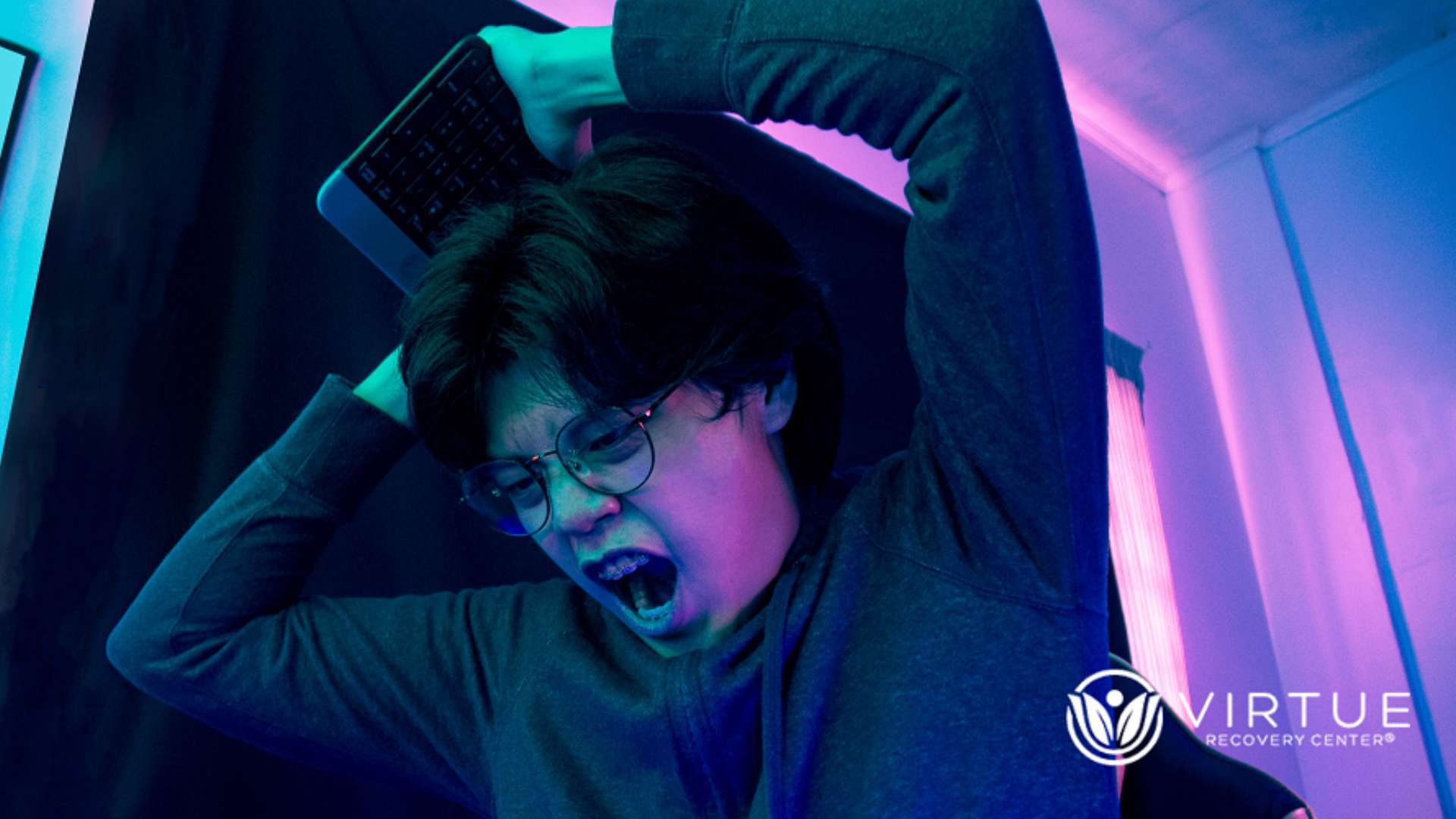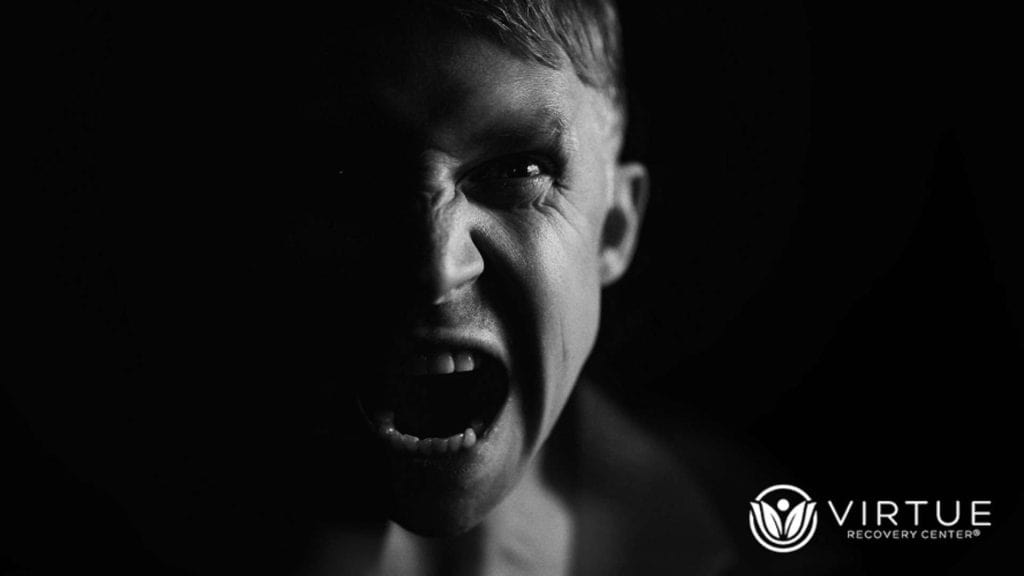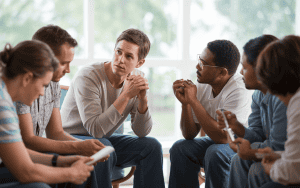Key Takeaways
- People who have blackout rage typically lose their memory and act aggressively, which is commonly connected to excessive drinking.
- When someone has blackout fury, young people are more likely to be hurt, get into fights, and face legal problems.
- Alcohol changes the brain in a way that makes it difficult to control emotions, which may lead to angry outbursts.
- Long-term abuse of alcohol makes it more likely that you may acquire a drug use disorder.
- Young individuals may interrupt the pattern with professional treatment, such as drug rehab in Chandler, alcohol detox programs, and therapies like motivational interviewing.
Introduction
For many young adults, drinking alcohol can feel like a regular social activity. Unfortunately, binge drinking is not only dangerous but also carries hidden risks, one of which is blackout rage symptoms. This phenomenon combines the memory gaps of an alcohol blackout with extreme aggression, leading to volatile behavior.
People, including parents, friends, and even the people themselves, may think these events are “just partying too hard.” But you should never disregard the signs of blackout anger. They are signs of deeper problems, such as brain damage, a higher likelihood of addiction, and issues with mental health. According to the National Institute on Alcohol Abuse and Alcoholism (NIAAA), blackout episodes reflect severe neurological disruptions that harm both short- and long-term well-being.
This blog talks about why blackout rage happens, how dangerous it is, and how treatment alternatives and recovery programs may help you have a better future.
What Are the Signs of Blackout Rage?
When excessive drinking causes two things to happen at the same time, it might lead to blackout rage:
- Memory loss (blackout): The hippocampus in the brain temporarily stops recording memories.
- Anger (rage): Alcohol lowers your inhibitions and makes it harder to control your impulses, which may cause anger that has been held back to come out violently.
During these episodes, young people may shout, fight, break things, or do other dangerous things without remembering it the following day. People often forget things when drinking, but adding wrath to the mix makes things much more dangerous.

Why Young Adults Are More Vulnerable to Alcohol’s Effects
Young people and alcohol together are pretty harmful. Young adults frequently:
- Drink a lot to “fit in.”
- Don’t have completely formed frontal lobes, which are in charge of making decisions.
- Have less tolerance than elderly folks.
Blackout rage symptoms happen when these things happen at the same time. This may easily lead to difficulties with friends, school, or the law, particularly for college students or young professionals.
What Does Alcohol Make People Angry?
Alcohol changes the chemistry of the brain in ways that make people more aggressive:
- Loss of impulse control: Alcohol impairs the prefrontal cortex, which makes it harder to think clearly.
- More emotional reactivity: It makes the amygdala, which is the brain’s “emotional center,” work harder.
- Low serotonin levels: Low serotonin levels make it more challenging to control your emotions, particularly anger.
As the CDC notes, alcohol’s effects extend well beyond intoxication, contributing to violence, injury, and long-term health risks. What happened? A young adult who would usually walk away from a fight suddenly attacks. Without remembering what happened afterward, it becomes much harder to hold people accountable.
What May Happen If You Ignore Blackout Rage Signs?
Ignoring instances of blackout fury may have effects that last for a long time, such as:
- Fighting or acting carelessly might hurt you.
- Legal consequences: Getting a DUI, assaulting someone, or damaging property may all lead to criminal records.
- Breakdowns in relationships: People close to someone who has violent blackouts frequently feel frightened around them.
- Addiction may happen: Drinking too much regularly might lead to alcohol use disorder.
If these symptoms aren’t dealt with, they might lead to a cycle of reliance and catastrophe. This is why getting expert help, like drug rehab in Chandler, is so important.
What Can an Alcohol Detox Program Do for You?
The first step in dealing with blackout rage symptoms is an alcohol detox program. Detox helps people safely stop drinking alcohol while dealing with harmful symptoms, including seizures, tremors, or hallucinations. Having a doctor watch over the procedure makes it steadier and less stressful.
After detox, people might go on to either inpatient or outpatient treatment, depending on what they require. People who suffer regular anger and blackout episodes should strongly consider long-term organized therapy.

Why Does Motivational Interviewing Work for Young Adults?
Motivational interviewing (MI) is a therapy that helps individuals discover the drive to overcome bad habits. MI may be beneficial for young people who have blackout rage since it:
- Helps people face the actual effects of their drinking.
- Instead of pushing change, it builds inner drive.
- Gives you a safe place to think about your aspirations and what makes you tick.
People get the skills and the courage to make lasting changes when they combine MI with therapy and detox assistance.
When Should Families Think About Going to Rehab in Chandler?
Families frequently have a hard time knowing when to step in. Some signs that you may need treatment are:
- A lot of blackouts and memory problems.
- Aggressive outbursts or conduct that destroys things while drinking.
- Having trouble keeping up with school, job, or friends.
- People who try to stop drinking but can’t.
A drug rehab clinic in Chandler makes personalized treatment programs that could include detox, therapy, and ways to stop using drugs again. Young people have a significantly better chance of getting well quickly if they get help early on.
What Role Does Relapse Prevention Play in Recovery?
Blackout anger is commonly linked to excessive drinking; therefore, it’s essential to stop it from happening again. Most programs include:
- Finding out what makes you drink: Stress, social pressure, or trauma may all make you want to drink.
- Ways to deal with stress or conflict: Learning how to respond healthily.
- Support networks: Peer accountability and group treatment.
- Aftercare programs: Ongoing outpatient assistance helps sustain improvements.
Relapse prevention lowers the chances of having more blackout rage episodes by dealing with both the physical and emotional aspects of alcohol abuse.
Conclusion
Blackout rage symptoms are more than simply an uncomfortable side effect of drinking too much; they are a dangerous sign of hidden dangers. These events are bad for the health, relationships, and future of young people.
The good news is that there is aid. With help from an alcohol detox program, therapies like motivational interviewing, and complete treatment at a drug rehab in Chandler, young people may break the pattern of blackout anger that is hurting them.
Don’t wait until the damage is done if you or someone you care about is having trouble with alcohol abuse and blackout fury. Call Virtue Recovery Chandler at 866-338-5779 now to start your journey to enduring recovery.
FAQs
What’s the difference between passing out and blacking out?
A blackout implies forgetting things while you’re awake and working, whereas a pass out entails losing consciousness.
Is there a connection between blackout anger and mental health problems?
Yes, untreated depression, trauma, or anxiety may make violent episodes worse during blackouts.
Is excessive drinking usually what makes people angry after they black out?
Mixing alcohol with other drugs may also induce similar symptoms, although alcohol is the most typical reason.
How long does it take for alcohol to leave the body?
Alcohol may be found in blood for up to 12 hours, and in urine for even longer, depending on how much you weigh and how quickly your body breaks it down.
Can young people get entirely over the symptoms of blackout rage?
Yes. It is possible to fully recover with treatment that includes detox, therapy, and relapse prevention.
Resources:
-
- National Institute on Alcohol Abuse and Alcoholism. “Interrupted Memories: Alcohol-Induced Blackouts.” National Institutes of Health, 2024, https://www.niaaa.nih.gov/publications/brochures-and-fact-sheets/interrupted-memories-alcohol-induced-blackouts
-
- National Institute on Alcohol Abuse and Alcoholism. “Treatment for Alcohol Problems: Finding and Getting Help.” National Institutes of Health, 2024, https://www.niaaa.nih.gov/publications/brochures-and-fact-sheets/treatment-alcohol-problems-finding-and-getting-help
-
- Centers for Disease Control and Prevention. “Alcohol Use and Your Health.” CDC, 24 Feb. 2025, https://www.cdc.gov/alcohol/about-alcohol-use/index.html








